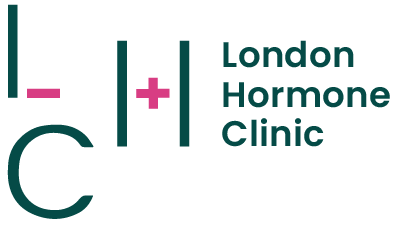Testosterone… not just for men.
Most people, when they think of testosterone, think of men. Rowdy crowds at football matches, sweaty gym-goers comparing stamina and muscle strength, and even cavemen, battling it out to be the best. And whilst testosterone is a crucial hormone for men, it’s an important female hormone too – one that’s produced in ovaries and adrenal glands. And yet another which declines with age in all of us.
Testosterone is a sex hormone, but it actually does far more than maintain a healthy libido. It boosts motivation and confidence, improves muscle mass and strength, reduces anxiety, promotes the healthy burning of fat, and, amongst many other things, protects the cardiovascular and urogenital systems. And there’s a growing body of evidence which shows the positive impact it has on maintaining psychological health too.
The male menopause
Levels of testosterone start to decline in men from around the age of thirty-five, something known as ‘andropause’, but because this happens slowly, over many years, symptoms are wide ranging, follow no set pattern, and can happen at any time. Anxiety, decreased bone density, erectile dysfunction, hair loss, insomnia, low mood, and reduced libido are just some of the many issues men face – often without an understanding of why. That’s because andropause is largely an undiagnosed condition.
The issue is this… GPs can refer men to urologists who can prescribe testosterone if a man’s levels are very low, but often they don’t, despite there being millions of studies out there which show the huge preventative benefits replacing testosterone can have. And, when it comes to awareness, men lag far behind women who have taken great strides forward in menopause education over the past few years. For men, there’s still a great deal of stigma and shame attached to testosterone decline, when there really shouldn’t be. It’s a normal, unavoidable part of the ageing process.
A great leap forward in menopause awareness
In contrast, menopause experiences, which were once talked about in whispers or suffered in silence, are now being shouted about from the rooftops. This is, of course, a monumental development, but much more needs to be done as there’s still a great deal of confusion and misinformation out there, along with a distinct lack of knowledge amongst frontline health workers and the public at large.
Ask the average menopausal woman about her hormones, and she’s unlikely to realise that a decline in her testosterone levels is to blame for her fatigue, loss of concentration, brain fog, and reduced libido. Of course, other factors are at play, but growing numbers of women are seeing the widespread benefits of testosterone replacement when it comes to perimenopausal and menopausal symptoms. They’re sleeping better, exercising more, feeling less anxious, and experiencing fewer joint aches and muscle pains. And although they often don’t realise it, by optimising hormonal health, they’re protecting themselves against future chronic illnesses such as heart attacks and cancers.
Testosterone replacement – the male/female divide
This growing body of evidence which shows the benefits of testosterone replacement for menopausal women hasn’t yet filtered down to NHS guidelines. Currently, the only types of testosterone replacement products available on the NHS are creams and gels and these are designed to be used by men. Women can still access testosterone if their GP is willing to prescribe it, but current guidelines say this can only be done to treat severely reduced libido.
Of course, private menopause and hormone clinics are prescribing testosterone for patients – both male and female – and seeing huge benefits. They do this based on both an evaluation of a patient’s symptoms, and comprehensive blood tests, which rule out other issues such as thyroid function and insulin resistance and give a clear measure of the amount of testosterone needed to replenish deficiencies and achieve optimal health. And they do this not only to alleviate symptoms present today, but to maintain cardiovascular health, avoid musculoskeletal decline, and optimise metabolic efficiency – the key to managing insulin resistance. All of which are absolutely critical when it comes to maintaining long-term health.
Will I grow a beard?
It’s a question often asked by women prescribed testosterone medication, fearful their voice will suddenly deepen, or they’ll grow more facial hair. The answer is no. When such care is taken to medically assess the amount needed for each individual patient, based on clinical assessment of their symptoms and blood tests, that it simply isn’t possible if the medication is administered correctly.
A medication for life?
Another question both men and women want the answer to, is whether they will have to take testosterone for life. Again, the answer is, of course, no. Every patient has a choice. That said, when both men and women see and feel the benefits of optimal hormonal health and understand the protection it affords them in the long-term, many see little reason to take that backwards step. There is no increased risk of any disease from being on testosterone, and its huge array of preventative benefits have been shown in study after study, protecting women against breast cancer, amongst many, many other things.
It’s hoped that this growing body of evidence results in change so that one day soon there’s equality in access to testosterone treatment, so that anyone, male or female, can have it when levels are low. After all, as you now know, it’s not just a male hormone.

